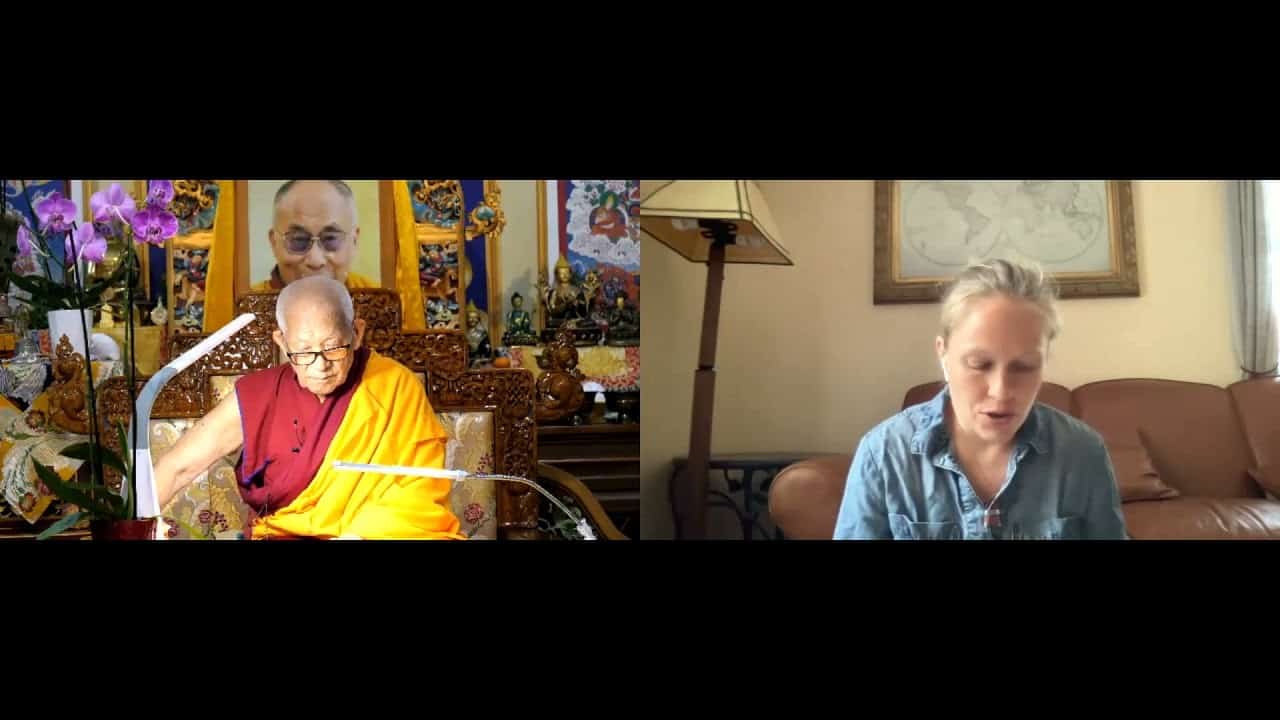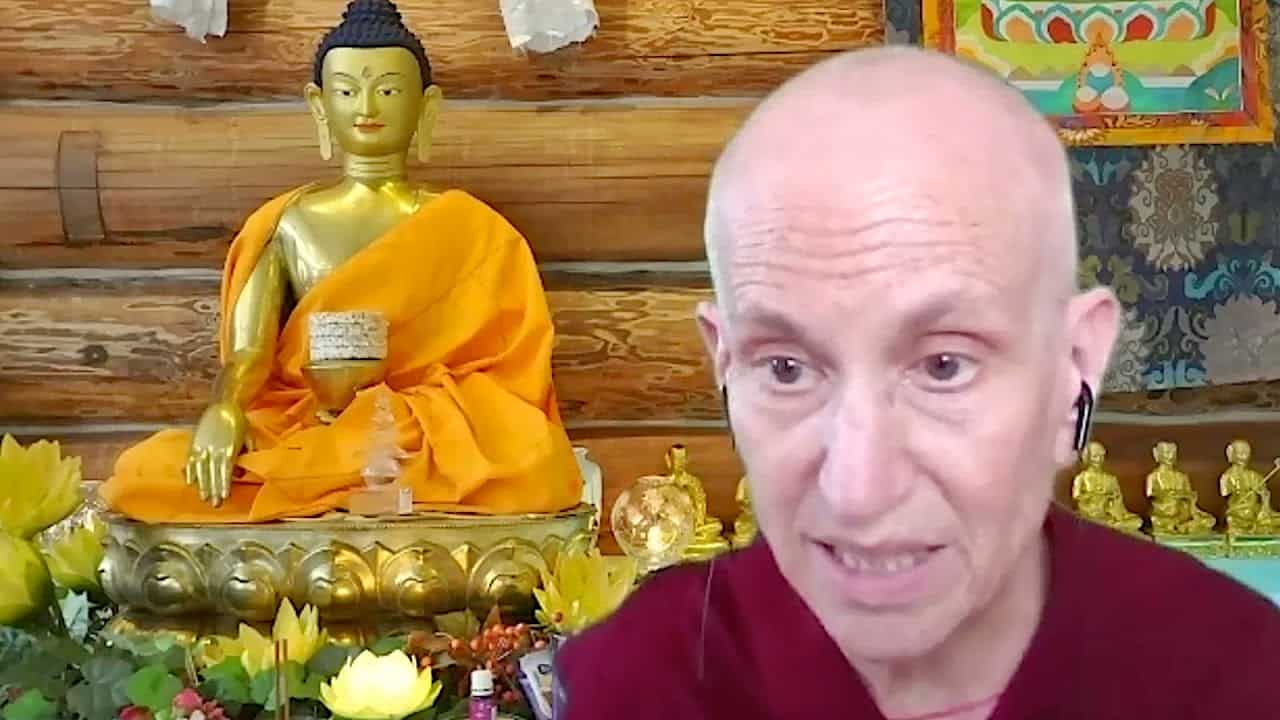Truth of the path
Part of a series of teachings by Geshe Yeshe Thabkhe on Dharmakirti's commentary on Dignaga's Compendium on Valid Cognition. In Tibetan with English translation by Katrina Brooks, resident translator at the Deer Park Buddhist Center in Wisconsin.
- Meditating on selflessness removes the root cause of samsaric suffering
- Permanent and impermanent are mutually exclusive, there is no third possibility
- The four aspects of the truth of the path
- Proving that the wisdom realizing selflessness is the path to freedom
- Refuting that the wisdom realizing selflessness does not lead to liberation
- Rejecting the objection that the abandonments are reversible
- Disposing of the objection that once eliminated faults can arise again
- Summary of the reasonings proving the wisdom realizing selflessness is the path to freedom
Geshe Yeshe Thabkhe
Geshe Yeshe Thabkhe was born in 1930 in Lhokha, Central Tibet and became a monk at the age of 13. After completing his studies at Drepung Loseling Monastery in 1969, he was awarded Geshe Lharampa, the highest degree in the Geluk School of Tibetan Buddhism. He is an emeritus professor at the Central Institute of Higher Tibetan Studies and an eminent scholar of both Madhyamaka and Indian Buddhist studies. His works include Hindi translations of The Essence of Good Explanation of Definitive and Interpretable Meanings by Lama Tsongkhapa and Kamalasila's commentary on the Rice Seedling Sutra. His own commentary, The Rice Seedling Sutra: Buddha’s Teachings on Dependent Arising, was translated into English by Joshua and Diana Cutler and published by Wisdom Publications. Geshela has facilitated many research works, such as a complete translation of Tsongkhapa’s The Great Treatise on the Stages of the Path to Enlightenment, a major project undertaken by the Tibetan Buddhist Learning Center in New Jersey where he teaches regularly.


